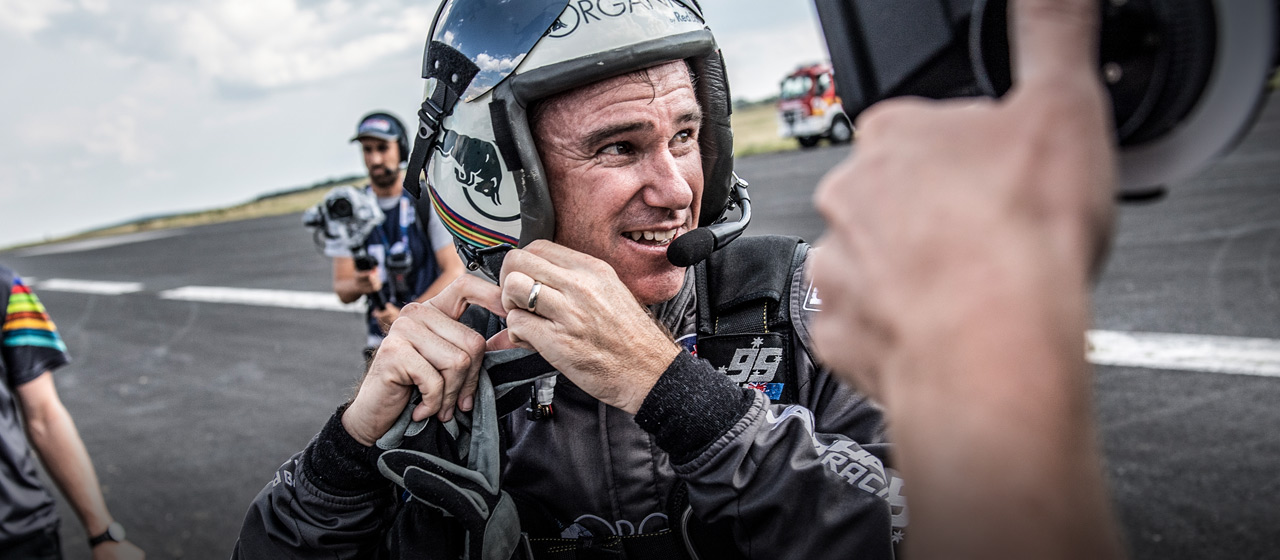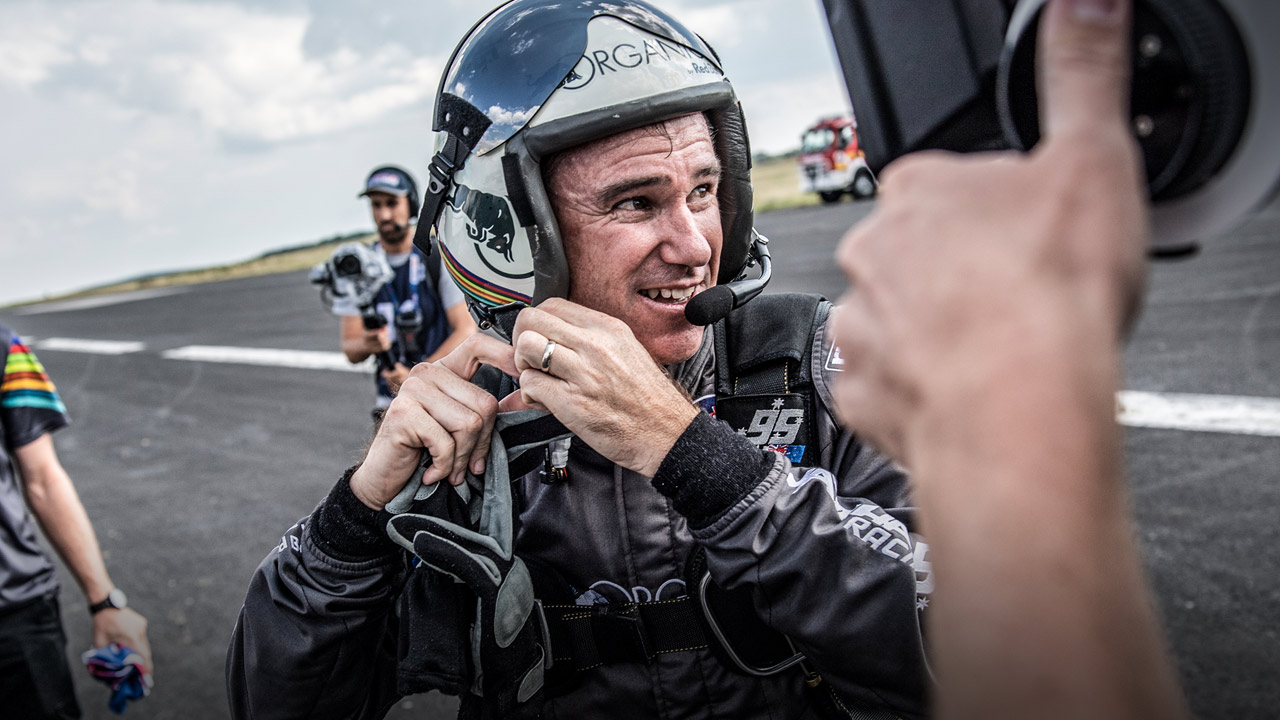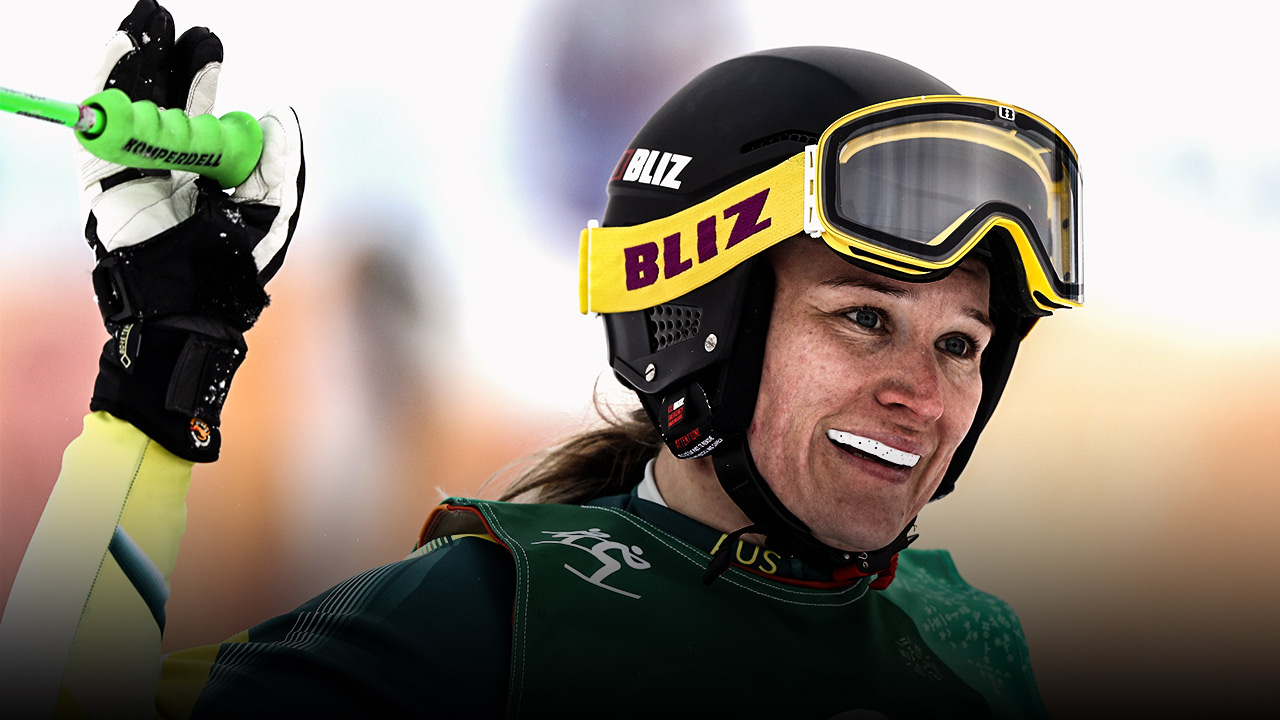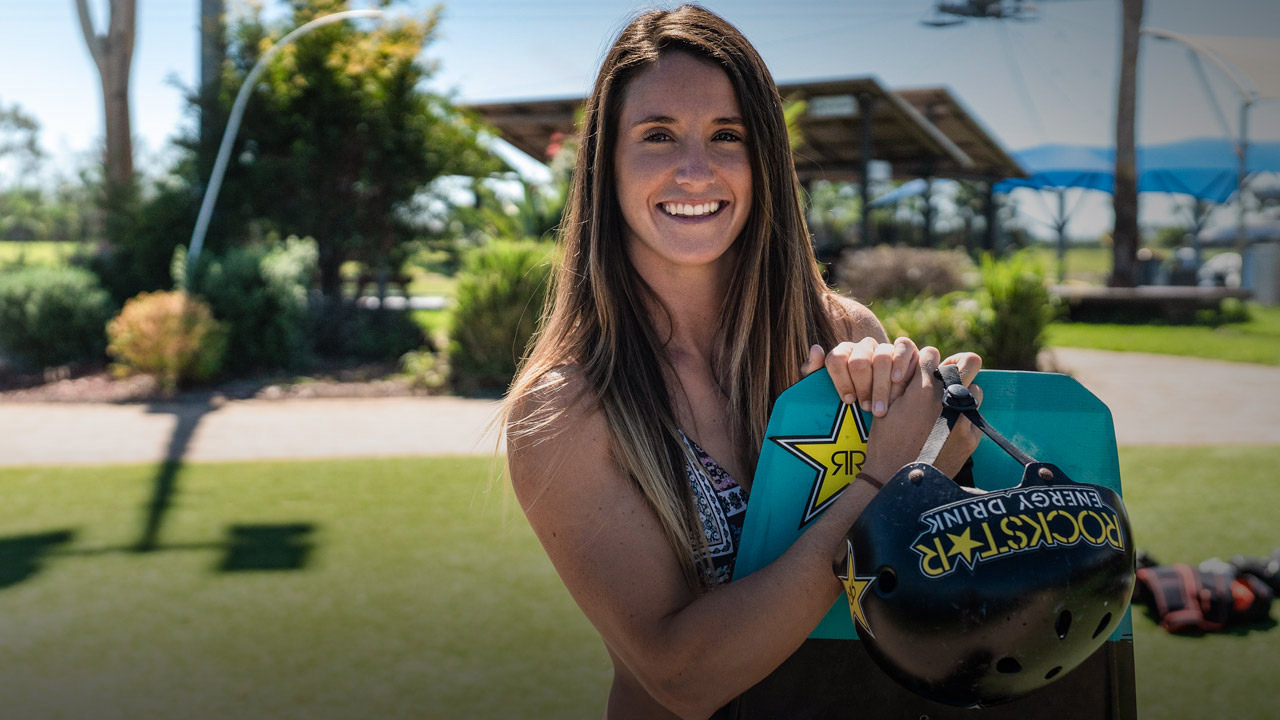Action Sports
Everyone needs big, stupid dreams
I was flying a night mission in 2003, transiting across Baghdad in an F-15, when I saw a missile launch directly below me.
I’d seen them before, now and then, and when I saw that one I thought, ‘I’ll get out of that thing’s way; it’s going somewhere and I don’t want to be where it’s going.’
I turned to the right, away from it, and it came with me. I thought, ‘That’s interesting, it’s probably a coincidence’. So, I turned to the left and looked back down and it turned to the left as well.
In training you’re taught to test the missile. If you see a missile, you turn one way, and if it goes with you, it can be a coincidence. You turn the other way, and if it comes with you, the saying is, ‘You’re the birthday boy.’ You’re the centre of attention, selected for the special gift.
Now you don’t have a choice, you have to engage that missile. It’s a scary situation, and my life was on the line.
This all happened very quickly, but I was calm enough and trained well enough that the thought actually entered my head, ‘You’re the birthday boy.’
I had a small giggle to myself, and then started pulling out my defensive measures, and spent the next three seconds trying to stay alive. It says a lot about how my brain works and the level of my training, that I’m still here.

I was shot at in my first mission, and have had a number of other near misses in my life as a pilot – from starting out with my first solo flight at 15, to my time as an Air Force wing commander and now as the new champion of the Red Bull Air Race World Championship.
I think there are two types of people: there are those who if they have a near miss, their brain shuts down, and they throw their hands in the air, and go, ‘I don’t know what’s going to happen.’
Then you’ve got others, control freaks essentially, and fighter pilots are part of this crowd. With us the higher the pressure, the more you focus and concentrate and when you do that you get temporal distortion. Your brain starts operating at a higher level, and it just seems like everything else is slowing down.
The whole engagement from when I first saw the missile to when I finished doing my defensive reactions was eight seconds. To me, it seemed like it lasted half an hour. I was able to see everything that was going on and have clear thoughts about what my options were. And I’ve still got that incident very clearly in my mind.
You do a lot to be prepared, but training is training. You never know how you’re going to react in the big bad world, but in some ways it was quite enlightening to go, ‘wow, that worked out pretty well.’

I loved the freedom of flight
I have memories from when I was two or three being out at a gliding airfield and watching planes take off and land, and being allowed to sit in the cockpit and play with the controls.
I’m guessing I was about five when I had my first flight. My grandfather George flew in the southwest Pacific in World War II – in Beauforts by the time it ended. My dad Rohan loved it as well and I grew up flying alongside him, enjoying the fact I knew I was doing something special, and something I wanted to do.
My dad would tow gliders at the local airfield near Lake Macquarie. That was his main avenue for flying because he didn’t have to pay for that. He’d just keep going up and down towing gliders and if it was a two-seater, I’d ride along with him.
Dad was talked out of being an Air Force pilot by his parents, mainly because they’d been through a war and it was the time of Vietnam. They’d told him, ‘flying’s a great thing if you want to do it, but you want to do it under your own terms, not in war.’
Ultimately he started gliding, and that’s what I first really got into because it was a cheaper type of flying, and I could do it on my pocket money. Usually the glider pilot pays for the launch, but dad did a deal with me. He paid if he was towing me and I’d just have to pay for the glider, which was about 10 cents a minute.
One day a month I’d go and do two or three lessons, and then as soon as I turned 15 I took my first solo.
I felt different to everyone else at school. They’d be talking about their footy or soccer games on the weekend and they thought it was a bit strange that I was going off to fly planes instead.
I loved the freedom of flight, loved the challenge of trying to get it right, and loved the view; everything about it. That feeling of going solo at 15 and floating around the sky. It was absolutely incredible to think that you’re in a plane on your own going, ‘I guess I’ve got to make all the right decisions from here to get this thing back on the ground again.’

On my first solo flight they forgot to tell me to do a circuit, so I flew dead straight across country. In a glider you can fly for as long the air lifts you up. After about an hour they came on the radio: ‘It’s time for you to come back and land, kid’.
Later in my school years, when I was allowed to have passengers, some of my mates thought it was cool to come up to the airfield with me, and I’d take them for a flight. But typically it was just me on my own. I think that helped develop me into an independent person because I was comfortable being involved in single-minded focus and preparation and planning.
It’s always felt natural. I hear of people who are scared of flying but I’ve never had that. I had a different fear I had to get over to have the life I wanted.
Scarier than failure
I was at school when I decided I wanted to be a fighter pilot. Just as my dad was talked out of the military by his parents, mine tried the same with me.
My school friends weren’t sure either. You can imagine: you’re a teenage kid and Top Gun comes out and you say, ‘Yeah, I’m going to go and do that. I want to be Maverick’. Your average school kid’s going, ‘No, you’re not. You can’t do that.’
Then there was a school career advisor who just outright told me I couldn’t do it; told me I wasn’t the calibre of person to join the military and fly.
Because of that I changed my goal to wanting to become a commercial pilot, then realised that I couldn’t afford to pay for my own flying training. I was stuck, thinking ‘what do I do now?’
I was fortunate to meet a World War II Spitfire pilot, a distant relative, who told me he would give anything to be in my shoes; to have the potential I had to go and join the Air Force and fly fighters.
And I realised that I had the potential that other people wanted but I wasn’t going to use it because I was scared of people saying, ‘I told you so’ if I failed. I decided that something to be more scared about in life is letting opportunities go through your fingers; that’s a lot scarier than failing while trying your hardest.
I thought I have to find out. If I fail, I’ll deal with myself and say, ‘At least I gave it a go’. But if I succeed, I never have to look back over my shoulder with regret.
I do a lot of corporate speaking and every time I give my talk, there’s a handful of people that come up afterwards and say, ‘I always wanted to do that, but I didn’t because I was told I wasn’t good enough – couldn’t, shouldn’t, wouldn’t – and now I regret it.’
Never tell a kid that they can’t do something, as long as it’s morally correct. Say ‘righto, if that’s what you want to do, then let’s go.’
I’m always encouraging everybody in the world to have big, stupid dreams. The stupider the better.

I don’t want you to kill yourself
I was 18 when I moved from home down to Point Cook to do officer training. I went the route of direct entry. You turn up knowing nothing and 13 weeks later you’ve learned enough to be able to survive.
Then it was pilot training. I struggled with the military side of things, because I’d never done cadets and I grew up on a small farm, flying on my own. I had never done much teamwork.
I was independent and on my own, so to be put into the military where you’ve got to polish your shoes, and stand and march with the group, know who to call ‘sir’, who to salute, how to salute; all of that was overwhelming.
But once we started the flying, that was different.
If you see a missile, you turn one way, and if it goes with you, it can be a coincidence. You turn the other way, and if it comes with you, the saying is, ‘you’re the birthday boy.’
I’m one of the few people I’ve heard of who actually enjoyed pilot training. Most don’t like it because they’re scared of failure, and they can’t wait for it to be over. I looked at it as every day the Air Force gives me these amazing aircraft to fly and learn in.
Every flight is a personal battle and massive learning curve. You’re held to such a high standard. Training lasts about 13 months, in which time you start from scratch, assuming you know nothing about an aircraft, and end up being able to fly military aircraft in formation, at night, in clouds, doing strike missions. Pressure piled upon pressure.
In the civilian world, if you’re having an issue with something you’re doing with your flying, you might have to shell out for a few extra lessons. In the military if you’re having a problem, they’d give you another go at it, and if you fail again, it’s ‘well dude, sorry, you just lost your job.’
A lot struggle with the stress of knowing that two or three bad days in a row will cost you your job.
The course had a 40 per cent pass rate in my year, so the stakes were clear. I was lucky I didn’t get in a rut. You could see people; they’d be doing all right, then they’d have one or two bad rides and the microscope is on them and mentally they can’t drag themselves out of it and they spiral.
Later I became an instructor and I had the job of cutting people from courses. It’s a sad thing to do, because you want everyone to be able to do the world’s coolest job. But I’d tell them, ‘I can’t let you pass for two reasons; one is that I don’t want you to kill yourself, and two is I don’t want you to kill one of my friends by not doing your job properly.’





